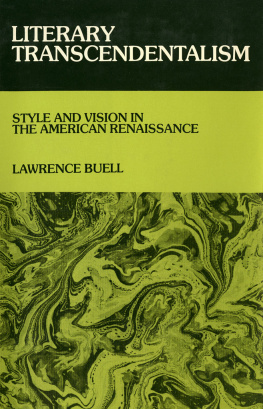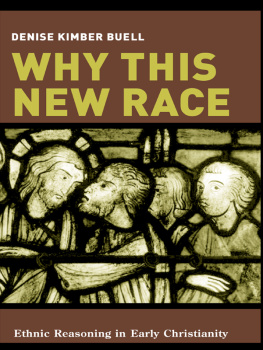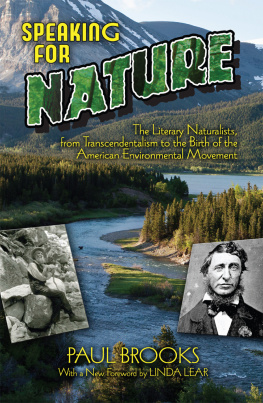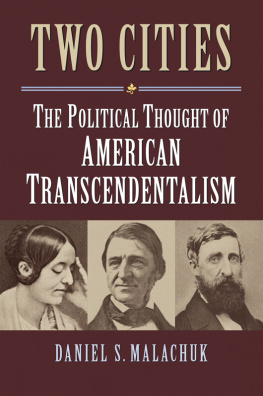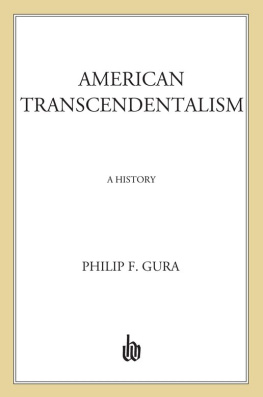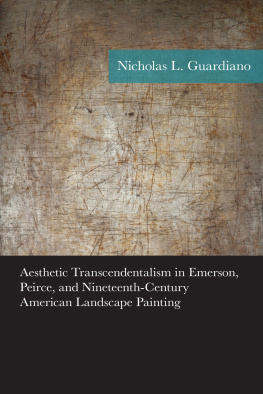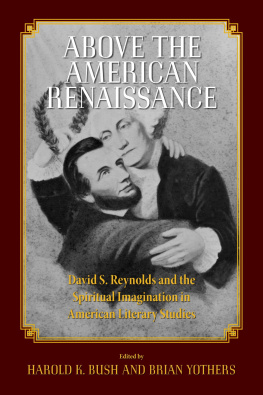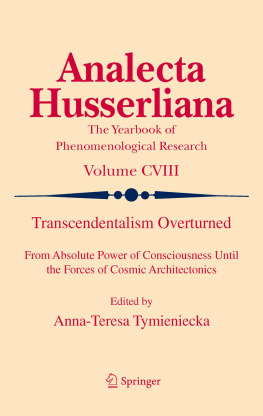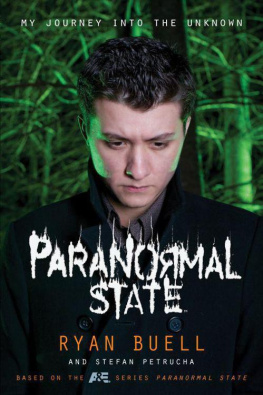Buell - Literary transcendentalism: style and vision in the American Renaissance
Here you can read online Buell - Literary transcendentalism: style and vision in the American Renaissance full text of the book (entire story) in english for free. Download pdf and epub, get meaning, cover and reviews about this ebook. year: 1975;2016, publisher: Cornell University Press, genre: Religion. Description of the work, (preface) as well as reviews are available. Best literature library LitArk.com created for fans of good reading and offers a wide selection of genres:
Romance novel
Science fiction
Adventure
Detective
Science
History
Home and family
Prose
Art
Politics
Computer
Non-fiction
Religion
Business
Children
Humor
Choose a favorite category and find really read worthwhile books. Enjoy immersion in the world of imagination, feel the emotions of the characters or learn something new for yourself, make an fascinating discovery.
Literary transcendentalism: style and vision in the American Renaissance: summary, description and annotation
We offer to read an annotation, description, summary or preface (depends on what the author of the book "Literary transcendentalism: style and vision in the American Renaissance" wrote himself). If you haven't found the necessary information about the book — write in the comments, we will try to find it.
Buell: author's other books
Who wrote Literary transcendentalism: style and vision in the American Renaissance? Find out the surname, the name of the author of the book and a list of all author's works by series.
Literary transcendentalism: style and vision in the American Renaissance — read online for free the complete book (whole text) full work
Below is the text of the book, divided by pages. System saving the place of the last page read, allows you to conveniently read the book "Literary transcendentalism: style and vision in the American Renaissance" online for free, without having to search again every time where you left off. Put a bookmark, and you can go to the page where you finished reading at any time.
Font size:
Interval:
Bookmark:
| JA | The Journals of Bronson Alcott. Selected and edited by Odell Shepard. Boston: Little, Brown, 1938. |
| JE | Journals of Ralph Waldo Emerson. 10 vols. Edited by Edward Emerson and Waldo Emerson Forbes. Boston: Houghton Mifflin, 19091914. |
| JMN | The Journals and Miscellaneous Notebooks of Ralph Waldo Emerson. 8 vols. to date. Cambridge: Harvard University Press, 1960. |
| JT | The Journal of Henry D. Thoreau. 14 vols. Edited by Bradford Torrey and Francis H. Allen. Bastan: Houghton Mifflin, 1906. |
| Ossoli | Memoirs of Margaret Fuller Ossoli. 2 vols. Edited by James Freeman Clarke, Ralph Waldo Emerson, and William H. Channing. Boston: Phillips, Sampson, 1852. |
| Tr | The Transcendentalists: An Anthology. Edited by Perry Miller. Cambridge: Harvard University Press, 1950. |
| W | The Complete Works of Ralph Waldo Emerson. 12 vols. Edited by Edward W. Emerson. Bastan: Houghton Mifflin, 19031904. |
| Wa | Henry Thoreau. Walden. Edited by J. Lyndon Shanley. Princeton: Princeton University Press, 1971. |
| Wr | The Writings of Henry David Thoreau, vols. IVI. Boston: Houghton Mifflin, 1906. |
This book owes its existence to a succession of teachers who showed me the possibilities of literary study by example as well as prescription. For support and criticism in my studies of Transcendentalism, I am grateful to James McConkey, G. Ferris Cronkhite, Walter Slatoff, and especially Jonathan Bishop. Equally important has been Arthur Mizeners constant encouragement through the years.
To Oberlin College I am indebted for support (through a leave of absence and two grants-in-aid) to pursue research. The George and Eliza Howard Foundation also supported my research with a generous grant in 19691970.
My colleagues Dewey Ganzel, Robert Pierce, and John Olmsted read portions of this manuscript at various stages of its evolution and contributed valuable insights. Richard Brown, in many long conversations, helped my understanding of New England history. I am also indebted to former Oberlin students for suggestions on a number of topics, especially to Suzanne Bernstein, Dan Campbell, and Bruce Nygren. Ms. Bernstein also served as my research assistant in 1971.
The officers of several libraries have given me permission to examine and quote from manuscripts in their possession. Quotations from manuscripts by Emerson, Thoreau, A. Bronson Alcott, and William Ellery Channing II are by permission of the Harvard College Library. The Massachusetts Historical Society has granted permission to quote from manuscripts by Theodore Parker and Christopher Cranch; the Andover-Harvard Theological Library of the Harvard Divinity School, from Theodore Parker; the Boston Public Library, from Elizabeth Peabody; and the Wellesley College Library, from Jones Very. For permission to quote from manuscripts by Emerson, Alcott, Channing, and Cranch I am indebted also to the Ralph Waldo Emerson Memorial Association, to Mrs. F. Wolsey Pratt, to Mr. Laurence M. Channing, and to Mrs. Emerson Evans, respectively.
Doubleday & Company, Inc., has granted permission to reprint A Transcendental Conversation from The American Transcendentalists, edited by Perry Miller.
Earlier versions of a few portions of this book appeared in American Quarterly (1968, 1972) and in American Transcendental Quarterly (1971). I am grateful to the editors for permission to use this material here.
I am grateful also to the staff of the Oberlin College Stenographic Services Department for typing my manuscript.
Finally, I have dedicated this book to my family, to whom I owe much more than any public acknowledgment can tell.
LAWRENCE BUELL
Oberlin, Ohio
Since the Puritan ministers were traditionally the cultural as well as the religious leaders of their people, it was natural that their successors should participate actively in the so-called flowering of New England letters during the early nineteenth century. The best of the literary and intellectual periodicals which mark the first stage of this process were thus run and written largely by clergymen: the Monthly Anthology and Boston Review (18031811), the North American Review (18151939), and the Christian Examiner (18241869). What is more noteworthy about these experiments is that their clerical supporters were almost exclusively Unitarian ministers. The Orthodox Congregationalists and other evangelical sects had their journals toofor this was the golden age of the religious magazine. But theirs were much more narrowly theological in scope.
Conversely, in the area of theology itself, the liberal clergy rarely approached the best of the evangelicals in depth, rigor, and thoroughness.
The difference in literary attitudes between liberal and Orthodox Congregationalism was great enough even to become a point of dispute in the Unitarian controversy. The Unitarians tended to look down upon Orthodox preachers as dogmatic and narrow-minded ranters, while the Orthodox stigmatized Unitarian preaching and writing as hollow displays of elegance which please delicate tastes and itching ears, but awaken no sleeping conscience.
One must naturally beware of taking the language of controversy at face value. The Orthodox reviewer who condemned a
Orthodox writers, though not entirely opposed to the arts, tended to be cautionary and restrictive. From this point of view, the Panoplist in 1808 endorsed a Presbyterian ministers estimate that five hundred out of every thousand novels were so contemptibly frivolous, as to render the perusal of them a most criminal waste of time and that four hundred ninety-nine of the remaining five hundred might be considered as positively seductive and corrupting in their tendency.
Liberal divines also fretted about unsanctified literature, and the frivolity of novels in particular; some of Theodore Parkers sarcasms rival Beechers.
Such statements hardly sound revolutionary to our ears, but for their day they were avant-garde. As William Charvat observes in his study of early American periodical criticism, one of the most important developments that took place between 1810 and 1835 was the displacement of the negative principle of religious restraint by the positive principle of moral idealism. The reviewers question changed from Does this book make vice attractive? to Does it make virtue beautiful?
Unitarian influences did not always improve ones critical discernment, though. However much the Unitarian critics praised artespecially poetryin the abstract, when it came to passing judgment they followed Orville Deweys stricture that the moral character, or the effect upon the mind, must be the test. On this ground and this ground alone, Dewey denies the But even while the Unitarians excited themselves by such daring remarks, they were holding hard to the very puritan, and Yankee, notion of art as justified by practical utility. For Dewey it is the singers capacity for promoting holiness that makes his art worth praising.
It could hardly have been otherwise. So long as the Unitarians held revealed religion, at least in theory, higher than natural religion, they could not consistently depart from the position that human creation was at best a means of Christian influence. There was only one way of rescuing art from this position of subservience, short of denying its obligation to be moral or spiritual, which no self-respecting Unitarian would have done in public. The one alternative was to disclaim the specialness of revelation itself, or, in other words, to affirm that the utterance of art is (potentially) just as spiritual as that of the Bible. This is precisely what the more radical Transcendentalists did. To be sure, whatever they said in disparagement of the authority of revelation, they generally conceded that the Bible in general and Jesus in particular were the most perfect expressions of the divine spirit which mankind has yet seen. But they also insisted, with varying degrees of intransigence, that other men are also capable of inspiration, that the difference between them and Jesus is at most one of degree. This being the case, Emerson said, what shall forbid us to universalize the operations of God & to believe the operation of the Holy Spirit is the same in kind in the prophet Isaiah as in the poet Milton?
Font size:
Interval:
Bookmark:
Similar books «Literary transcendentalism: style and vision in the American Renaissance»
Look at similar books to Literary transcendentalism: style and vision in the American Renaissance. We have selected literature similar in name and meaning in the hope of providing readers with more options to find new, interesting, not yet read works.
Discussion, reviews of the book Literary transcendentalism: style and vision in the American Renaissance and just readers' own opinions. Leave your comments, write what you think about the work, its meaning or the main characters. Specify what exactly you liked and what you didn't like, and why you think so.

